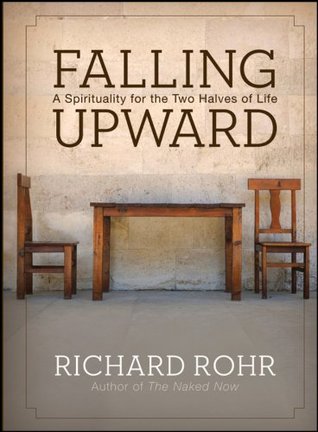More on this book
Community
Kindle Notes & Highlights
by
Richard Rohr
Read between
December 26 - December 28, 2022
Your concern is not so much to have what you love anymore, but to love what you have—right now. This is a monumental change from the first half of life, so much so that it is almost the litmus test of whether you are in the second half of life at all.
Persona and shadow are correlative terms. Your shadow is what you refuse to see about yourself, and what you do not want others to see. The more you have cultivated and protected a chosen persona, the more shadow work you will need to do.
The general pattern in story and novel is that heroes learn and grow from encountering their shadow, whereas villains never do.
Neither our persona nor our shadow is evil in itself; they just allow us to do evil and not know it. Our shadow self makes us all into hypocrites on some level. Remember, hypocrite is a Greek word that simply means “actor,” someone playing a role rather than being “real.” We are all in one kind of closet or another and are even encouraged by society to play our roles. Usually everybody else can see your shadow, so it is crucial that you learn what everybody else knows about you—except you!
I am afraid that the closer you get to the Light, the more of your shadow you see. Thus truly holy people are always humble people. Christians could have been done a great service if shadow had been distinguished from sin. Sin and shadow are not the same. We were so encouraged to avoid sin that many of us instead avoided facing our shadow, and then we ended up “sinning” even worse—while unaware besides!
Invariably when something upsets you, and you have a strong emotional reaction out of proportion to the moment, your shadow self has just been exposed. So watch for any overreactions or overdenials.
But let me distinguish good and necessary sadness from some forms of depression. Many depressed people are people who have never taken any risks, never moved outside their comfort zone, never faced necessary suffering, and so their unconscious knows that they have never lived—or loved!
So our question now becomes, “How can I honor the legitimate needs of the first half of life, while creating space, vision, time, and grace for the second?” The holding of this tension is the very shape of wisdom. Only hermits and some retired people can almost totally forget the first and devote themselves totally to the second, but even they must eat, drink, and find housing and clothing! The human art form is in uniting fruitful activity with a contemplative stance—not one or the other, but always both at the same time.1
Basically, the first half of life is writing the text, and the second half is writing the commentary on that text. We all tend to move toward a happy and needed introversion as we get older. Such introversion is necessary to unpack all that life has given us and taken from us. We engage in what is now a necessary and somewhat natural contemplation. We should not be surprised that most older people do not choose loud music, needless diversions, or large crowds. We move toward understimulation, if we are on the schedule of soul. Life has stimulated us enough, and now we have to process it and
...more
At the risk of being too cleverly alliterative (though it may help you remember), here is the normal sequencing of the dualistic mind: it compares, it competes, it conflicts, it conspires, it condemns, it cancels out any contrary evidence, and it then crucifies with impunity. You can call it the seven C's of delusion, and the source of most violence, which is invariably sacralized as good and necessary to “make the world safe for democracy” or to “save souls for heaven.”
Unless you let the truth of life teach you on its own terms, unless you develop some concrete practice for recognizing and overcoming your dualistic mind, you will remain in the first half of life forever, as most of humanity has up to now. In the first half of life, you cannot work with the imperfect, nor can you accept the tragic sense of life, which finally means that you cannot love anything or anyone at any depth. Nothing is going to change in history as long as most people are merely dualistic, either-or thinkers. Such splitting and denying leaves us at the level of mere information,
...more
Beauty or ugliness really is first of all in the eye of the beholder. Good people will mirror goodness in us, which is why we love them so much. Not-so-mature people will mirror their own unlived and confused life onto us, which is why they confuse and confound us so much, and why they are hard to love. At any rate, it is only those who respond to the real you, good or bad, that help you in the long run. Much of the work of midlife is learning to tell the difference between people who are still dealing with their issues through you and those who are really dealing with you as you really are.


